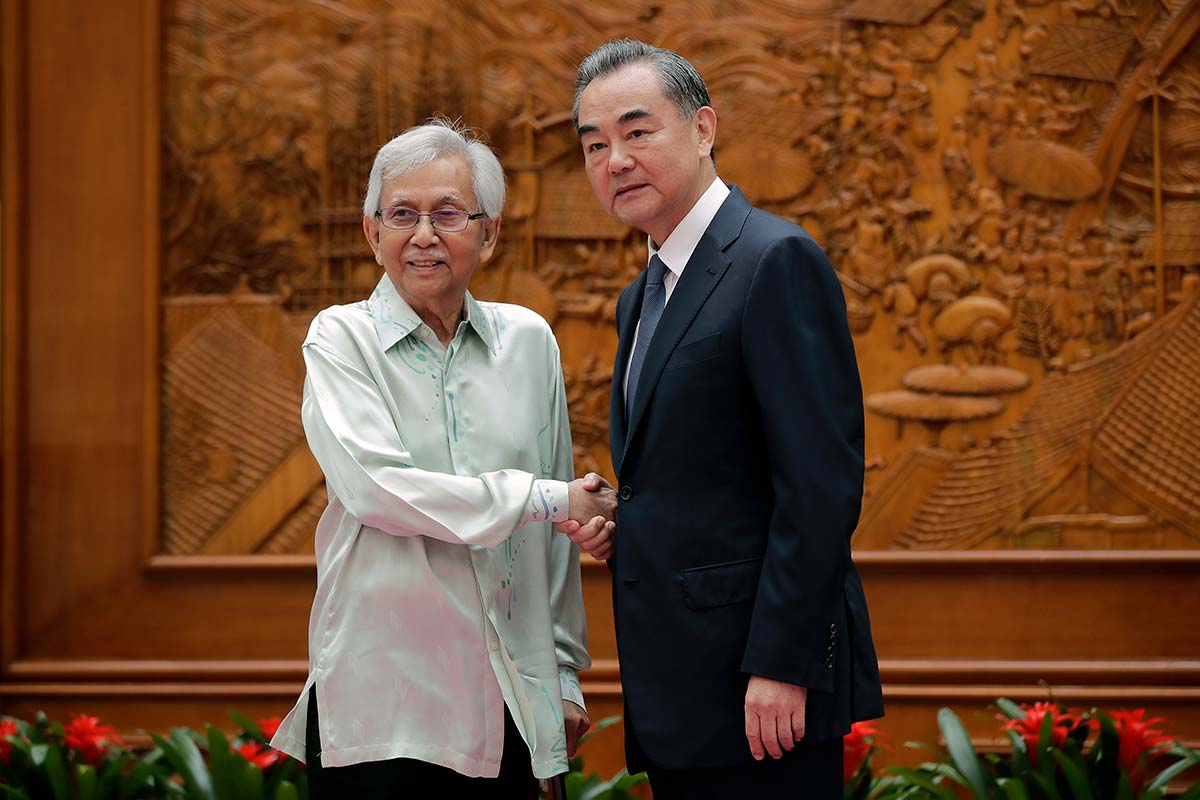100 days have now come and gone and just 21 out of the 61 promises made by Malaysia’s new ruling coalition, the Alliance of Hope (Pakatan Harapan) as part of its election pledge has thus far been completed.
The five-person Council of Eminent Persons (CEP) which was formed to implement the new coalition’s 100-day pledge, advise the cabinet on policy related matters, and review Malaysia’s existing or proposed mega-projects and international business deals has now received a new mandate from Prime Minister, Mahathir Mohamad to continue functioning without a stipulated time frame.
While the CEP had initially been formed to operate for just 100 days, Mahathir has made it clear that the council will remain pass that deadline, as the services of its members are still needed by the government of Malaysia. This has raised concerns over the council’s legitimacy and role with regards to the functions of the executive branch of government.
Led by Mahathir’s close confidant and former Finance Minister, Daim Zainuddin, its members are unelected by the people and are seemingly not held accountable to the country’s set of checks and balances. The CEP is neither a creation of statute nor is it a body of enquiry under Malaysia’s Commissions of Enquiry Act 1950. It wasn’t formed by way of a parliamentary vote, nor does it function as a select committee which is answerable to the country’s lawmakers.
Advisory role
On more than one occasion, its members, primarily Daim, have exhibited actions that seem to overstep the council’s advisory role including its alleged involvement in the resignation of the country’s top judges and the departure of several top government and corporate leaders.
In a media statement, Kua Kia Soong, advisor to independent human rights organisation, Suara Rakyat Malaysia (SUARAM), highlighted the constitutional legality of the council and the possible clashes of interest with regard to Daim’s business dealings.
“There is gross conflict of interest with such arrangements when these corporate leaders still have interests in the local and international corporate scene,” he added.
“It is well known that Daim Zainuddin has corporate and banking interests all over the world. His business interests extend beyond banking to other key sectors of the country’s economy such as plantations, manufacturing, retailing, property development and construction,” he added.

Source: Various sources
Several government backbenchers have also voiced their concerns about the CEP and the possibility of it encroaching into the work of existing cabinet members. While Mahathir insists the CEP is there to help “inexperienced” ministers on the job, the prolonging of their time as advisors could hint at a lack of trust he may have with his own cabinet members.
Doubts also remain on the exact nature and role of the council’s members and whether they are drawing a salary from taxpayer money or not. Last July, Daim visited China on an official diplomatic mission – seemingly sidestepping the Foreign Minister and Finance Minister – to help renegotiate loans and contracts inked by the previous government. It is unsure what the actual outcome of his discussions with Chinese officials were, or how much tax-dollars was used to fund the trip.
The same month also saw another council member and former Central Bank Governor, Zeti Aziz appointed as the new chairman of Permodalan Nasional Bhd (PNB), Malaysia’s largest strategic fund manager which oversees US$69 billion in assets as of end-2017. Her appointment came after the resignation of its previous chairman, Abdul Wahid Omar as part of an alleged shake-up initiated by the council to cull and restructure important government institutions and state-owned enterprises. Zeti’s new tenure as PNB chairman is assumed to be part of such a restructuring exercise, with not many details emerging from this latest appointment and if there could be a possibility of a clash of interests as she remains a member of the CEP.
Such actions, have withstood very little pushback from the public owing to the massive support currently enjoyed by Mahathir’s administration. A stellar high approval rating of 71 percent gives the government of Malaysia considerable leeway to govern without much resistance – at times, skirting sticky issues related to transparency and accountability, especially with regards to the conduct of the CEP’s members.
While the current sentiment on the ground largely remains in favour of it, Malaysia’s new government must not allow itself to be too self-confident as recent history has shown that even titans can be brought to their knees.
